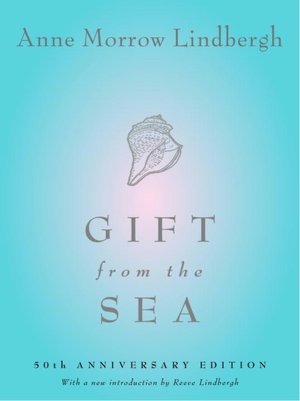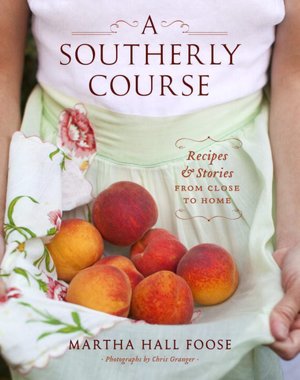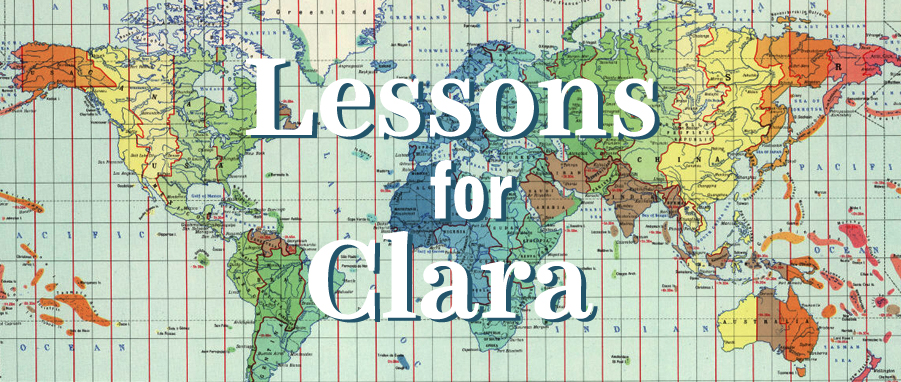By H. Savala Nolan
I’m in the doctor’s waiting room. I’m on the couch during commercials. I’m waiting for my latte. I’m in bed, restless. I’m waiting for my boyfriend to get dressed. I’m in the train station. I’m lined up to board my flight. I idle, therefore, I Facebook.
In moments of quiet—moments I might use for serenity, to smell the scents and see the colors of the world around me—I grab my phone and tap the icon, a plain blue square with a friendly white “f” just slightly off center. Behold: my friends. I’m idle, but they are busy. They are fawning over baby animals, baying for blood because of politics, announcing spiritual truths, loafing in tropical sun, sitting down to the best meal ever, cataloging the day’s humdrum triumphs and defeats, staring alluringly into the eye of a camera, getting engaged, having children, praying over dying aunts and granddads. Despite myself, and despite how over-stimulated, drained, or jealous it can leave me, I log on. I can’t seem to help it.
Everyone is ambivalent about Facebook. How can we not be? Status updates—the meat of the log-on—do one of two things: elevate the boring, or degrade the profound. Both are bothersome. It exasperates me that some friends think hundreds of people hang on edge, craving ruminations on how much they love coffee, every day. (And yet, the prosaic is the real juice of life, how we string our days together—why shouldn’t we honor it?) I’m uncomfortable when my friends announce the death of a relative with a stroke of text—silent, clinical, hovering in ether—transmitted to people who will read, dash off sympathy, and forget. (And yet, we know people all over the world. We can’t make 478 phone calls or address 478 letters. This is how we live now.)
But here is the real trouble with Facebook: I never talk to my best friends anymore. In high school, Louise and I sometimes chatted on the phone for 6 or 7 hours a night. We talked about seniors we pined for (their leather jackets and spiky hair and the pretty girls they dated). We talked about music (Green Day and Nine Inch Nails). We talked about diets (cabbage soup) and drinking (did we dare?) and what color to dye our hair (purple). Adulthood at 30-something renders that omnipresent intimacy impossible; she produces reality television, I practice law, we are busy and live 2,000 miles apart. But even in our roaring twenties, we still spoke almost daily. Now, after the entrenchment of Facebook, it is typical for us to go nearly a month without speaking. Recently, with aching disbelief, I realized that the sole reason I know anything about her life is because of her status updates, which tend to be pithy and unremitting, headlines refreshed every few hours as if she were a newspaper. But could that be true? To test my theory, I blocked her from my newsfeed. A month passed. Radio silence, except for my birthday, when she called. But before that, I couldn’t tell you if she was alive or dead.
At first, confirming the fallow state of our friendship chagrined me. I felt wronged—by her. What sort of person has time to broadcast her whereabouts, food and beverage intake, disgruntled moments, workouts, and crowd-sourcing inquiries upward of a dozen times a day, but cannot find time to connect with her best friend, one on one? To be sure, this isn’t all Facebook. She and I hammer out resolutions when, periodically, I feel I’m single-handedly doing the work of friendship. Perhaps we are simply growing apart. I, of course, could have called her; but why would I? I had Facebook. And so our affinity for Facebook—the estranged, thoughtless intimacy of it—allowed the primary challenge in our incredibly important friendship to become to the substance.
Then, after a few weeks, something unexpected happened: the irritation waned, and I began to miss her. I began to miss her in a way I never did when following her every move and thought online. In fact, I couldn’t have missed her on Facebook: she was everywhere, always.
Yes, I missed her, with the fresh, affectionate curiosity that used to precede a phone call to say hello. And I realized that, despite the constant “updates,” I missed my other best friends, and some family members, too. I didn’t want the curated comic book of their lives; that’s what Keeping Up with the Kardashians is for. I wanted noise, texture, and monogamy, not silence, a screen, and a stranger “liking” what I wrote. I wanted interjection. I wanted to hear laughter and sighs, and remember that I know some voices so well I can see the speaker’s facial expressions over the phone. I wanted to see, or at least recall, familiar bodies that take up real space. I wanted the moments of silence that come, they say, about every seven minutes in a conversation. And I wanted to hear my voice, too. I needed the grounding and fruition that comes from contact, not the bargain-basement copy that comes from interface.
So I blocked everyone I’m close to. It was a strangely anxious goodbye, as if I were strapping myself into a space shuttle, only perhaps to return. My mom, my best friend, my boyfriend. All the inner circle, and the next-to-inner circle. Gone.
But suddenly present. Suddenly, again, real. Suddenly, again, in my awareness because they are not constantly in my face. Just like a fish can’t think about water, maybe we can’t truly contemplate—or properly love—people who are always in front of us in the most superficial ways. Good though it may be to “keep in touch” by knowing my brother-in-law ran four miles today, that news is the emotional equivalent of junk food. I don’t see my loved ones when I log on, and I feel a pang of, well, love. After a few days, I think, Hey, where are Jane and Quinn and Melissa and David? How are they? What are they doing these days? It’s like letting yourself get truly, empty-stomach, slightly-on-edge hungry; then you truly want to eat! If you graze all day, you never feel hunger, and you’re never satisfied by what you eat because your eating isn’t connected to satisfaction.
Now, if I want to know what’s up with my brother, I call. And I was surprised to discover that calling was scary. It turns out that I, a social butterfly, have developed a Facebook-induced shyness. Calling feels so forward, so direct, so daunting. But only for about a minute. Then you come to your senses. You give yourself an inward smack across the cheek, and snap out of it. Afraid to call my brother? Are you kidding? I’ve known him for 32 years, and we get along! What’s there to debate? Call. And I do. And we are, as in the old days, family. It feels great.
And there is a bonus, though it’s not one Facebook’s shareholders would be thrilled to know about: I log-on less. Much less. After all, what is there to see? The photographs of puppies that my Mom’s former best friend is currently into? The engagement news of people I never liked but was too meek to ignore when they requested my friendship? The wit and attitude as my cousin’s pals outdo each other’s comments? How entirely, intensely boring.
Especially when there is a city outside my window, and sunshine, and late-summer fruit, and music, and people. My friends, my family, and myself, to be seen and heard.





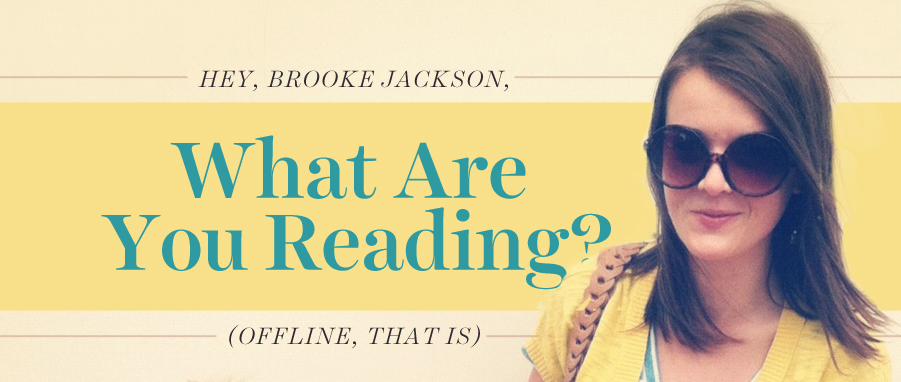
 New Complete Vegetarian
by: Rose Elliot
I've been a vegetarian for half of my life and had to get creative in the kitchen after marrying my husband. Cooking meatless meals for someone who enjoys a medium rare steak has its challenges. In order to keep peace at our dining table, I read recipes to learn more about different flavor combinations and cooking techniques. Rose Elliot's New Complete Vegetarian was given to me as a gift, and I'm currently drooling over its every page. With over sixty books under her belt, Rose is Britain's most influential vegetarian/vegan writer. Her ingredients and words are so engulfing you can actually smell the aromas of each course being prepared. This particular cook book contains hundreds of mouth-watering recipes covering a hostess' every need: sweet relishes and tangy salad dressings; veggie infused pastas and rice; made-from-scratch tarts and cheesy quiches; and delectable desserts. Rose's ingredient lists are short and simple which works well for both the intimidated beginner cook or the expert chef. Whether you follow a recipe step-by-step or put your own unique spin on it, this book is the perfect cooking companion.
New Complete Vegetarian
by: Rose Elliot
I've been a vegetarian for half of my life and had to get creative in the kitchen after marrying my husband. Cooking meatless meals for someone who enjoys a medium rare steak has its challenges. In order to keep peace at our dining table, I read recipes to learn more about different flavor combinations and cooking techniques. Rose Elliot's New Complete Vegetarian was given to me as a gift, and I'm currently drooling over its every page. With over sixty books under her belt, Rose is Britain's most influential vegetarian/vegan writer. Her ingredients and words are so engulfing you can actually smell the aromas of each course being prepared. This particular cook book contains hundreds of mouth-watering recipes covering a hostess' every need: sweet relishes and tangy salad dressings; veggie infused pastas and rice; made-from-scratch tarts and cheesy quiches; and delectable desserts. Rose's ingredient lists are short and simple which works well for both the intimidated beginner cook or the expert chef. Whether you follow a recipe step-by-step or put your own unique spin on it, this book is the perfect cooking companion.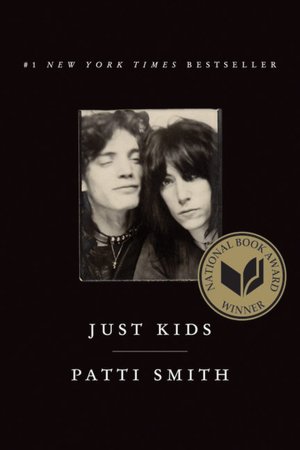 Just Kids
by: Patti Smith
Just Kids is a memoir written by Patti Smith, the “Godmother of Punk.” I could try to summarize this book, but there is so much happening that I can't put my finger on one specific premise. It's an ode to art and music, personal expression and exploration, and companionship and love. Smith moved to New York City during the summer of 1967. It was at the end of a few artistic eras such as the Beat Generation and the Warhol Factory Years, so Smith found herself riding on the coattails of many fascinating artists. Searching for her own masterpiece, she made a vow that her life would be dedicated to creating and sharing her work. On that very night, Robert Mapplethorpe, who is now an iconic photographer, made the same promise to give himself to his art. Later on, while Smith was working at Brentano’s Books on Fifth Avenue, the two crossed paths and quickly became each other’s artistic guide and muse. They searched together while creating, painting, filming, writing, and capturing life. Smith and Mapplethorpe were young artists or "just kids" on the verge of both breakdown and breakthrough. They experimented their way through the late 60's and lived on the forefront of their wildest dreams. During her time at the Hotel Chelsea, Patti also met some of my favorites such as Jimi Hendrix, Bob Dylan, Allen Ginsburg, and Andy Warhol. NYC has always been a melting pot of sensations with a variety of people who have big dreams and enduring stamina. Smith's descriptions are so poetically vivid that I found myself channeling her words as if they were my memories she recanted, constantly dropping the book to close my eyes and breathe. Hooray for empathy! Pick up this book, please!
Just Kids
by: Patti Smith
Just Kids is a memoir written by Patti Smith, the “Godmother of Punk.” I could try to summarize this book, but there is so much happening that I can't put my finger on one specific premise. It's an ode to art and music, personal expression and exploration, and companionship and love. Smith moved to New York City during the summer of 1967. It was at the end of a few artistic eras such as the Beat Generation and the Warhol Factory Years, so Smith found herself riding on the coattails of many fascinating artists. Searching for her own masterpiece, she made a vow that her life would be dedicated to creating and sharing her work. On that very night, Robert Mapplethorpe, who is now an iconic photographer, made the same promise to give himself to his art. Later on, while Smith was working at Brentano’s Books on Fifth Avenue, the two crossed paths and quickly became each other’s artistic guide and muse. They searched together while creating, painting, filming, writing, and capturing life. Smith and Mapplethorpe were young artists or "just kids" on the verge of both breakdown and breakthrough. They experimented their way through the late 60's and lived on the forefront of their wildest dreams. During her time at the Hotel Chelsea, Patti also met some of my favorites such as Jimi Hendrix, Bob Dylan, Allen Ginsburg, and Andy Warhol. NYC has always been a melting pot of sensations with a variety of people who have big dreams and enduring stamina. Smith's descriptions are so poetically vivid that I found myself channeling her words as if they were my memories she recanted, constantly dropping the book to close my eyes and breathe. Hooray for empathy! Pick up this book, please! Thin Air: Encounters in the Himalayas
by: Greg Child
A few months ago, I read the story of Jon Krakauer's experience on one of Mount Everest's most fatal seasons and have been semi-obsessed with Himalayan adventures ever since. I love every aspect of it: the physical challenges the human body endures to climb these peaks; the devotion and sometimes detrimental commitment of mountaineers to reach the highest places on Earth; and the emotional and mental battles that altitude, stress and ego add to the journey. After listening to me share stories of the Himalayas as though I was part of the trek myself, a friend gave Thin Air to me. The book sweeps you away into a range of breath-taking mountains while sharing some of the most riveting stories of Himalayan treks. One feels the roller coaster of excitement, the heartache from the innate barriers of being in politically delicate regions of the world to fulfill their dreams, the language struggles existing in crucial relationships, the undefinable joy of reaching their goals, and the bonding and loss of friends. I highly recommend this read for those who are seeking an adventure in life.
Thin Air: Encounters in the Himalayas
by: Greg Child
A few months ago, I read the story of Jon Krakauer's experience on one of Mount Everest's most fatal seasons and have been semi-obsessed with Himalayan adventures ever since. I love every aspect of it: the physical challenges the human body endures to climb these peaks; the devotion and sometimes detrimental commitment of mountaineers to reach the highest places on Earth; and the emotional and mental battles that altitude, stress and ego add to the journey. After listening to me share stories of the Himalayas as though I was part of the trek myself, a friend gave Thin Air to me. The book sweeps you away into a range of breath-taking mountains while sharing some of the most riveting stories of Himalayan treks. One feels the roller coaster of excitement, the heartache from the innate barriers of being in politically delicate regions of the world to fulfill their dreams, the language struggles existing in crucial relationships, the undefinable joy of reaching their goals, and the bonding and loss of friends. I highly recommend this read for those who are seeking an adventure in life.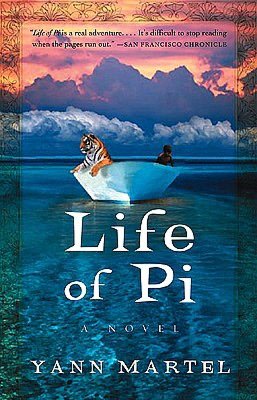 Life of Pi
by: Yann Martel
This is the story of a boy named Pi, who leaves India with his family to find a new life in Canada. While at sea, tragedy strikes and the unthinkable happens: Pi is the lone human survivor of a shipwreck and is stranded aboard a small lifeboat with an unusual assortment of companions. His only companions consist of a hyena, zebra, orangutan and Bengal tiger. Pi's courage and determination are tested as he must learn to survive on his own in the vast ocean while keeping the distraught wild animals at bay. Pi's story is one of hope, courage and self-preservation in the most unnatural of circumstances.
Life of Pi
by: Yann Martel
This is the story of a boy named Pi, who leaves India with his family to find a new life in Canada. While at sea, tragedy strikes and the unthinkable happens: Pi is the lone human survivor of a shipwreck and is stranded aboard a small lifeboat with an unusual assortment of companions. His only companions consist of a hyena, zebra, orangutan and Bengal tiger. Pi's courage and determination are tested as he must learn to survive on his own in the vast ocean while keeping the distraught wild animals at bay. Pi's story is one of hope, courage and self-preservation in the most unnatural of circumstances. Killing Lincoln<
by: Bill O'Reilly & Martin Dugard
This summer I brushed up on my American history by reading Killing Lincoln. I´m sure that sounds like a dreaded 11th grade required reading assignment, but I promise this book is not what you think. There will be no exam afterwards and, unlike me, you probably won´t be asked to write a synopsis of what you´ve read. Yes, it is the true story of the Lincoln assassination in 1865, but it's also a thriller told from the perspective of both the assassin and the victim. As we all know, John Wilkes Booth was the man who shot the President. But what else do you know about him? This book takes you inside his world and details his thoughts, relationships and movements, especially in the days leading up to the murder and the days immediately following. Lincoln, on the other hand, becomes a character that you wish didn´t have to die as you are also taken away from John Wilkes Booth and into the White House to witness his conversations and fears in the days leading up to his fateful trip to the Ford theater. I found myself hoping that history would somehow rewrite itself and only wish more historic events were written this way.
Killing Lincoln<
by: Bill O'Reilly & Martin Dugard
This summer I brushed up on my American history by reading Killing Lincoln. I´m sure that sounds like a dreaded 11th grade required reading assignment, but I promise this book is not what you think. There will be no exam afterwards and, unlike me, you probably won´t be asked to write a synopsis of what you´ve read. Yes, it is the true story of the Lincoln assassination in 1865, but it's also a thriller told from the perspective of both the assassin and the victim. As we all know, John Wilkes Booth was the man who shot the President. But what else do you know about him? This book takes you inside his world and details his thoughts, relationships and movements, especially in the days leading up to the murder and the days immediately following. Lincoln, on the other hand, becomes a character that you wish didn´t have to die as you are also taken away from John Wilkes Booth and into the White House to witness his conversations and fears in the days leading up to his fateful trip to the Ford theater. I found myself hoping that history would somehow rewrite itself and only wish more historic events were written this way.



















 Leah and I have a week off from our classes at the American College Program of Provence, and we have met my friend Will in Paris. It is night, the October streets are full of people, and after drinks in the Latin Quarter we are going to see the Eiffel Tower. The métro is still running, shuffling back and forth across the City of Light those accidental Parisian revelers who are not even aware that it is Halloween, something of a peculiarity to non-Americans. I haven't been trick-or-treating since I was a kid, and don't particularly like the drunk college Halloween parties that have recently marked the holiday, but for some reason I miss just having the possibility of disguising myself this year.
Leah and I have a week off from our classes at the American College Program of Provence, and we have met my friend Will in Paris. It is night, the October streets are full of people, and after drinks in the Latin Quarter we are going to see the Eiffel Tower. The métro is still running, shuffling back and forth across the City of Light those accidental Parisian revelers who are not even aware that it is Halloween, something of a peculiarity to non-Americans. I haven't been trick-or-treating since I was a kid, and don't particularly like the drunk college Halloween parties that have recently marked the holiday, but for some reason I miss just having the possibility of disguising myself this year.
